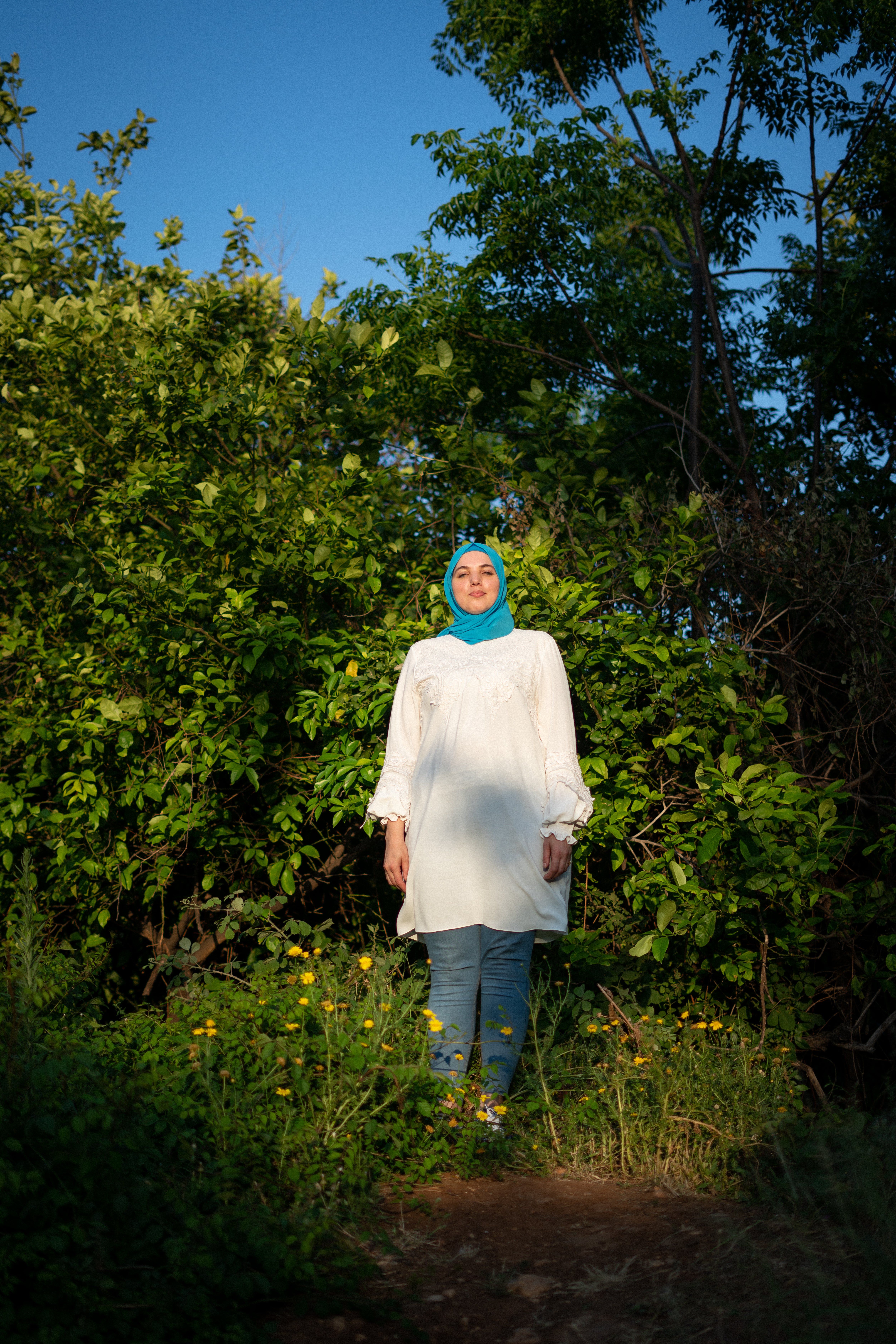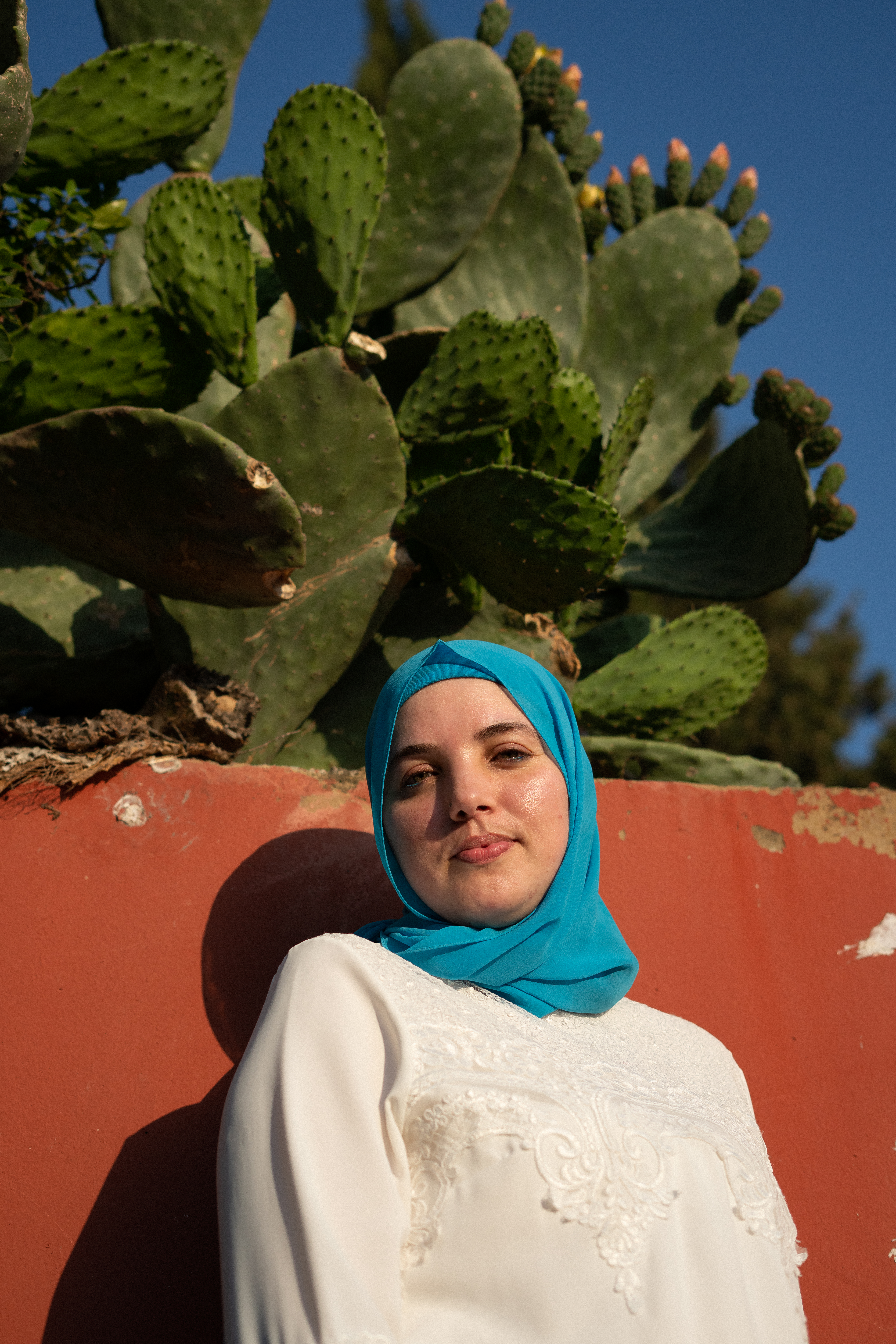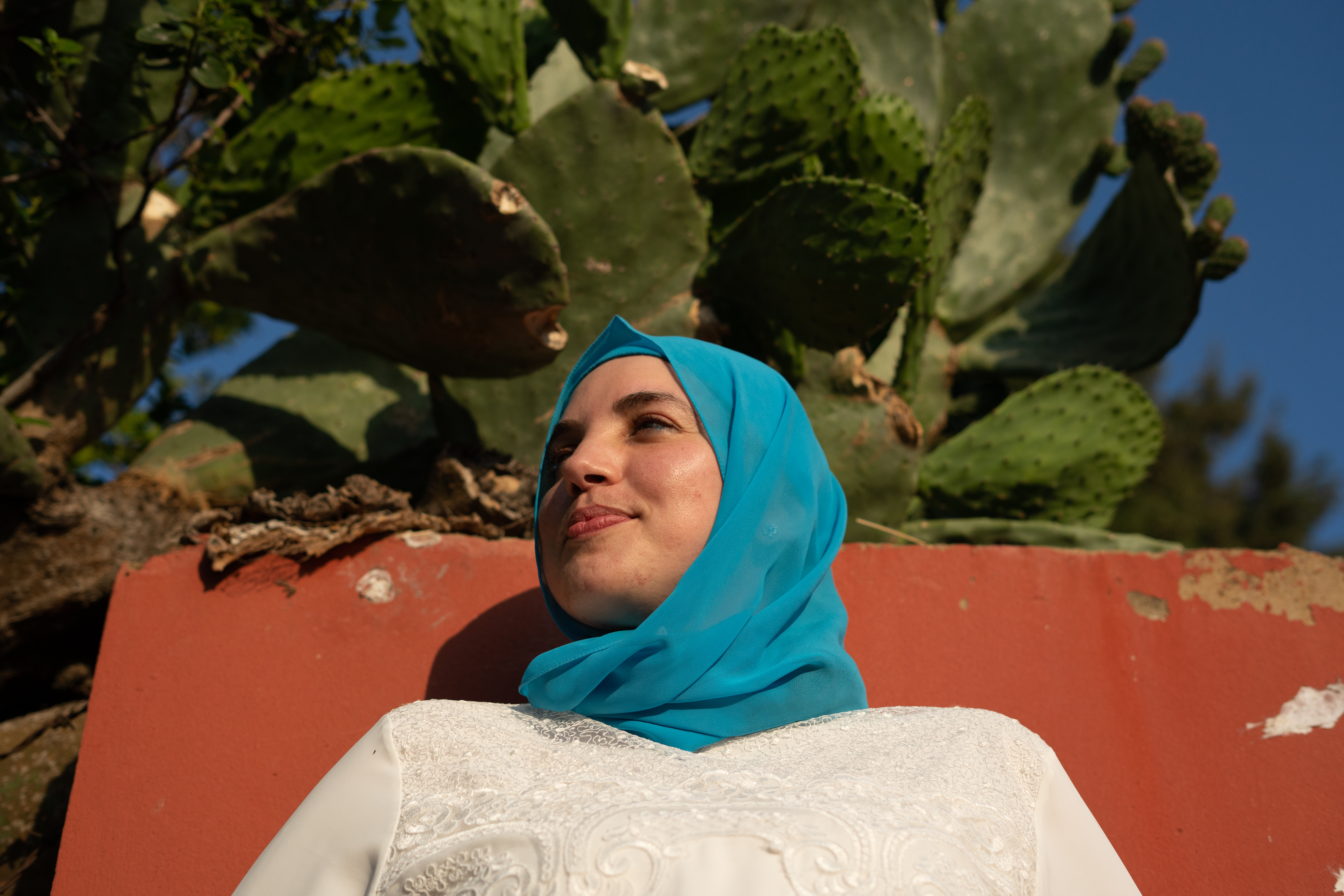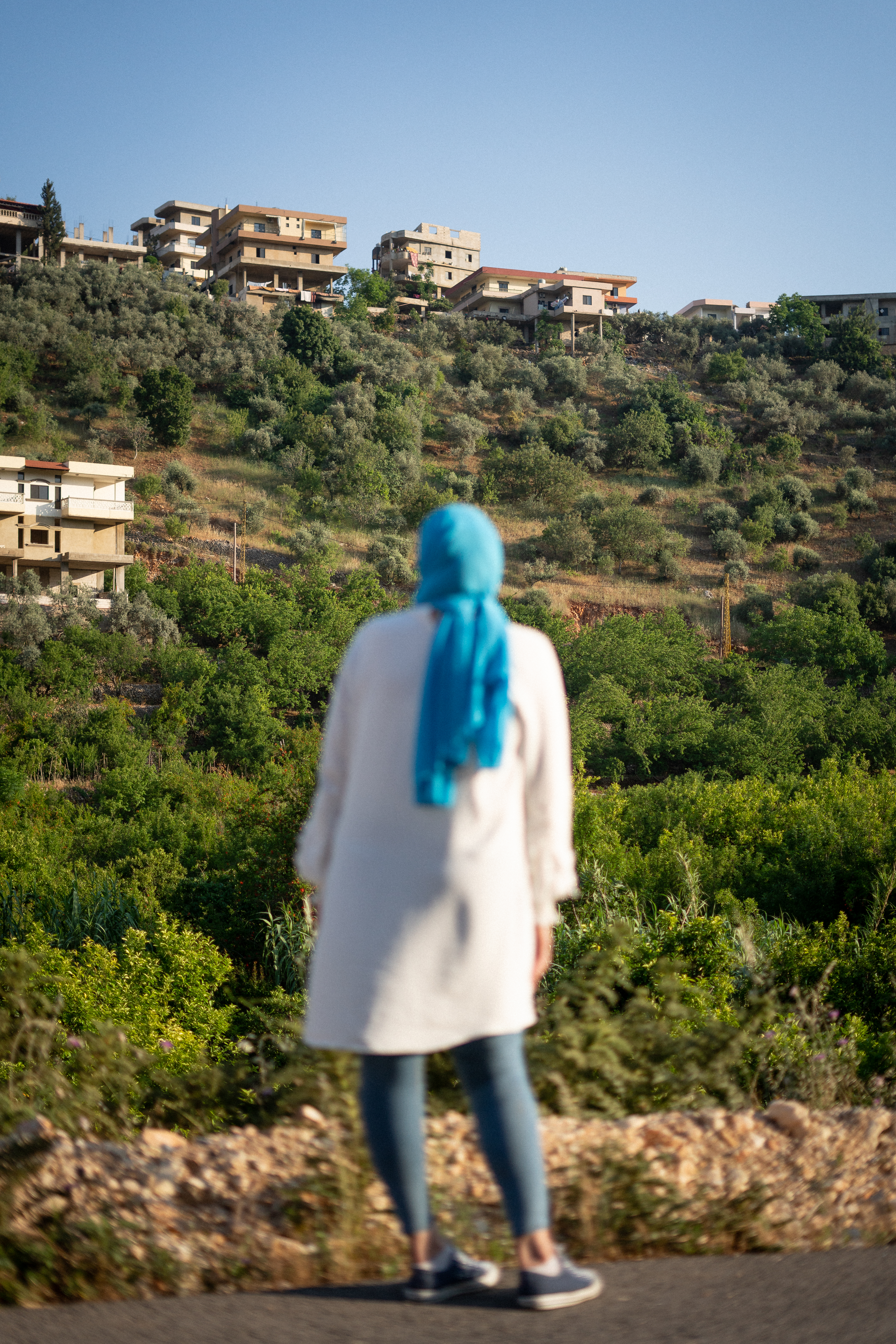Fatima: "Women understand the land in a way that men don’t"
Date:
This photojournalism essay is part of a gender analysis, conducted under the United Nations Productive Sector Development Programme (PSDP). It examines the daily lives and work and care responsibilities of women working across the fruits, vegetables, and nuts agricultural and agri-food value chains in North Lebanon.
Supported by UN Women, Fatima benefitted from a soft skills training part of the PSDP, generously funded by the Government of Canada. The PSDP is implemented by six United Nations entities: FAO, UNIDO, UNDP, UNICEF, ILO, and UN Women.

“The patriarchal system has always tried to stand in my way, and in the way of other women in this country. But I’ve continued to push through. I want to learn about everything, I want to continue growing. [...]. And now, more than ever, I want to understand how I can tap into the opportunities within the country’s agriculture sector.” - FATIMA

Fatima stands tall outside a short trail. Light pours over her face, dancing between the citrus trees and yellow wood sorrel flowers behind her. The trail leads to her family’s plot in Minyeh, a stretch of land that Fatima has been working on for years now.
“I have an ancestral connection to this land,” she says. “My maternal grandfather was a farmer in Akkar, and we learnt a lot from him. I like to focus on the small things: the smell of organic cucumber, how to grow okra, the most delicate way to press olives, what the best type of rosemary is.” After the economic crisis, Fatima’s family started using the land more as a form of self-sustenance. “Before, it was simply a shared plot that we used leisurely. But when we started to see that we can get to a point in Lebanon where we might run out of food, it became more critical that we think of it as a lifelong agricultural project.”
Fatima is the eldest of ten siblings. She was married at 16 and got a divorce several years later. Since returning to her parents’ home in Minyeh, she has been working on herself nonstop. “If I had to describe myself in one word, it would be ambitious,” she smiles. “I’m a restless woman: I constantly want to work on myself, to become a better version.” She tells us that her mother is incredibly proud of her. “It’s hard to explain but my mother feels I fulfilled a lot of things she might have wanted to when she was younger. That gives me a sense of strength.”
She underwent a law bachelor’s degree, then an English Literature graduate degree at the Lebanese University. She has also received diplomas and certificates in accounting, journalism, and coaching. “I want to be versatile. I love language and numbers, I love being practical but also being theoretical.”
Fatima tells us she loves postmodern and contemporary fiction, as well as parallel or “reimagined” novels—works that fill in the story, plot, or character of an older novel. “With language, you are allowed to create alternative realities and express yourself in different ways.”

Fatima is at a point of juncture in her life now. She’s spent years exploring different fields; she’s thought of different career options. “The problem is despite how much work I put in, there is no job market in Minyeh, or even in the entire North of Lebanon. That’s not easy, this feeling that you have talented women unable to find the right space for them.”
The economic crisis changed everything. “This country humiliates you. Standing in line to get dairy, to get bread, to get anything, it makes you feel so low. I don’t want that for me or my family, I want us to be secure.” This is why, over the past year, Fatima has been trying to take agricultural work more seriously. “I no longer want to just plant vegetables, I have bigger plans.”
But Fatima is not exactly sure about what to do next. She’s been applying and taking part in training sessions and workshops with municipalities, international organisations, and community centres in hopes of building the networks and accessing the resources needed to start work. She’s most interested in making mouneh from organic vegetables and fruits and finding a market to sell her foodstuffs with. “I’ve been dreaming about this for a while–I’ve been trying it on my own, at home, making zaatar, kishek, pickles, shankleesh, and other types of mouneh.” She is also interested in learning more about beekeeping, as well as innovative and modern approaches and technologies in agriculture.
There are multiple obstacles: problems with mobility due to the fuel crisis, fragmented supply chain networks, and the lack of capital to expand. “Sometimes you can go to a hundred training sessions, but if you do not get proper support with finding a job or building the right connections, it can lead to nothing.” It is this particular tension that Fatima struggles with: the sense of putting herself out there but not finding the space that can appreciate these efforts.
She feels the same when it comes to gender equality. “I haven’t felt limited because I am a woman. It’s the opposite—I feel strong and confident, I know my capacities. The problem is the society that surrounds me is deeply patriarchal and uncomfortable with change.” She rejects the notion that the agriculture sector is male-dominated and says that any close look at it illustrates how involved women have always been. “Women understand the land in a way that men don’t; they cultivate, harvest, produce. I’ve seen many women in Minyeh and Danniyeh do it. Women can even begin driving trucks and weeding, of course they can. Soon they will, wait and see.”

*This is the second of four photojournalism essays told from the perspective of a group of women working in the agricultural and agri-food value chains in North Lebanon. The essays recount how they are dealing with the new challenges brought on by the crises, as well as potential opportunities coming out of these challenges, and how those are slowly changing gender norms in rural communities.